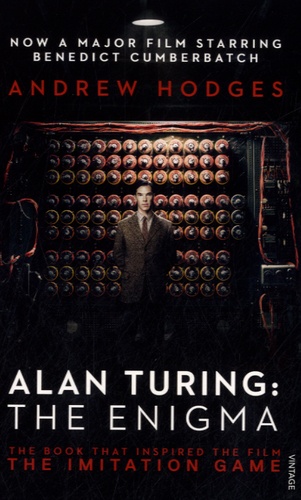


He wrote a paper on the chemical basis of morphogenesis and predicted oscillating chemical reactions such as the Belousov–Zhabotinsky reaction, first observed in the 1960s. In 1948, Turing joined Max Newman's Computing Machine Laboratory, at the Victoria University of Manchester, where he helped develop the Manchester computers and became interested in mathematical biology. Īfter the war, Turing worked at the National Physical Laboratory, where he designed the Automatic Computing Engine, one of the first designs for a stored-program computer. Turing played a crucial role in cracking intercepted coded messages that enabled the Allies to defeat the Axis powers in many crucial engagements, including the Battle of the Atlantic. Here, he devised a number of techniques for speeding the breaking of German ciphers, including improvements to the pre-war Polish bomba method, an electromechanical machine that could find settings for the Enigma machine. For a time he led Hut 8, the section that was responsible for German naval cryptanalysis. During the Second World War, Turing worked for the Government Code and Cypher School at Bletchley Park, Britain's codebreaking centre that produced Ultra intelligence. In 1938, he obtained his PhD from the Department of Mathematics at Princeton University. Whilst he was a fellow at Cambridge, he published a proof demonstrating that some purely mathematical yes–no questions can never be answered by computation and defined a Turing machine, and went on to prove that the halting problem for Turing machines is undecidable. He graduated at King's College, Cambridge, with a degree in mathematics. īorn in Maida Vale, London, Turing was raised in southern England.

He is widely considered to be the father of theoretical computer science and artificial intelligence. Turing was highly influential in the development of theoretical computer science, providing a formalisation of the concepts of algorithm and computation with the Turing machine, which can be considered a model of a general-purpose computer. Alan Mathison Turing OBE FRS ( / ˈ tj ʊər ɪ ŋ/ 23 June 1912 – 7 June 1954) was an English mathematician, computer scientist, logician, cryptanalyst, philosopher, and theoretical biologist.


 0 kommentar(er)
0 kommentar(er)
